AustLit
-
Click here to return to Language and Country > Regions
This collection of informational trails are under development in 2019. They will continually evolve as new works and information about writers are added to BlackWords.
-
 See full AustLit entry
See full AustLit entryFounded in Broome in the Kimberly region of Western Australia in 1987, Magabala Books is an Indigenous Australian publishing house. Its first book was Glenyse Ward's Wandering Girl (1988), which sold over 5,000 copies within two months; in addition British rights were sold to Virago Press. In 1990, Magabala became an independent Aboriginal corporation, managed by an all-Aboriginal management committee comprising local people and others with publishing experience.
Magabala 'publishes works by Aboriginal and Torres Strait Islander authors and editors, provides advice and publishing services and invites manuscripts.
-
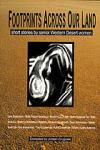 Image courtesy of Magabala Books'The following collection of short stories and poetry was told by a group of senior Kukatja, Wangkajunga and Ngarti women based at Wirrimanu and Yaka Yaka communities. The women present their perspective on living in the desert, Tjukurrpa (Dreaming) and their encounters with kartiya (White people) in the 1930s and 1940s.' (Source: preface by Jordan Crugnale) (...more)See full AustLit entry
Image courtesy of Magabala Books'The following collection of short stories and poetry was told by a group of senior Kukatja, Wangkajunga and Ngarti women based at Wirrimanu and Yaka Yaka communities. The women present their perspective on living in the desert, Tjukurrpa (Dreaming) and their encounters with kartiya (White people) in the 1930s and 1940s.' (Source: preface by Jordan Crugnale) (...more)See full AustLit entry -
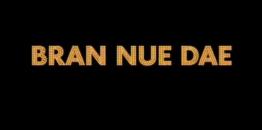 Screen cap from promotional trailerSee full AustLit entry
Screen cap from promotional trailerSee full AustLit entryBased on the stage musical of the same name by Jimmy Chi and the band Kuckles, Bran Nue Dae is set in 1969 and follows Willie, a young man who struggles to find a balance between the three things that drive his life: his love for his girl Rosie, his respect for his mother, and his religious faith. Willie's uncomplicated life of fishing and hanging out with his mates and his girl in the idyllic world of Broome is turned upside down when his mother returns him to the religious mission for further schooling and entry into the priesthood.
(...more) -
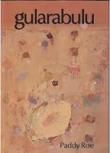 This image has been sourced from WebGularabulu, 'the coast where the sun goes down' is an area of country on the coast of the West Kimberley in the north-west of Western Australia. These stories belong not just to Paddy Roe but to all the people from the traditional tribal groupings of the Garadjeri, Nyigina, Yaour, Nyul-nyul and Djaber-djaber tribes. (...more)See full AustLit entry
This image has been sourced from WebGularabulu, 'the coast where the sun goes down' is an area of country on the coast of the West Kimberley in the north-west of Western Australia. These stories belong not just to Paddy Roe but to all the people from the traditional tribal groupings of the Garadjeri, Nyigina, Yaour, Nyul-nyul and Djaber-djaber tribes. (...more)See full AustLit entry -
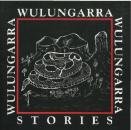 Image courtesy of the State Library of Western AustraliaThe stories in this book have been handed down by the old people and Yangkana (Madeline) Laurel is now passing them on. (...more)See full AustLit entryThese stories have online full text.
Image courtesy of the State Library of Western AustraliaThe stories in this book have been handed down by the old people and Yangkana (Madeline) Laurel is now passing them on. (...more)See full AustLit entryThese stories have online full text. -
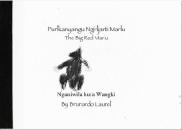 Image courtesy of the State Library of Western AustraliaSee full AustLit entry
Image courtesy of the State Library of Western AustraliaSee full AustLit entryThis story is about a man named Kadjina, who one day was hunting kangaroo, with an unexpected result.
(...more) -
 Image courtesy of Magabala BooksSee full AustLit entry
Image courtesy of Magabala BooksSee full AustLit entry'The 1960s are remembered as a time of change and upheaval throughout the Western world, including Australia. No part of the country changed more in that decade than the remote pastoral regions of the north. But in these tropical parts the winds of change did not bring the anti-war movement, the counterculture, feminism, or the other issues that preoccupied the cities. Rather, they blew down an industry, a regime, a culture that for the best part of a century had thrived on a semi-feudal system of co-dependence between the all-powerful station bosses, and large communities of unpaid Aboriginal workers and their families.
(...more) -
 Image courtesy of publisher's website.See full AustLit entry
Image courtesy of publisher's website.See full AustLit entry'Butcher Joe Nangan was one of those charismatic people who exercised a most profound impact on all who met him.
'Having spent his life acquiring the ritual knowledge and lore, not only of his own Nyikina and Walmajarri forbears but also that pertaining to the lands of his neighbours, Nangan believed that he could, through his art; present his world to a wider audience.
'With pencil, paint and pocket knife Nangan deftly depicted the artefacts, legends and history of his country.
(...more)
You might be interested in...



